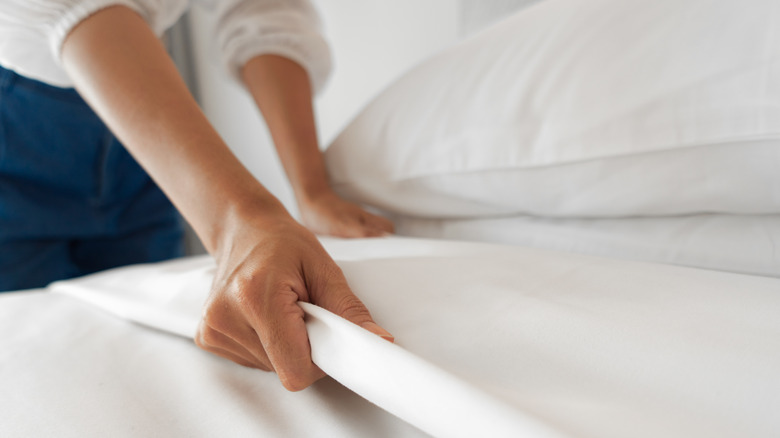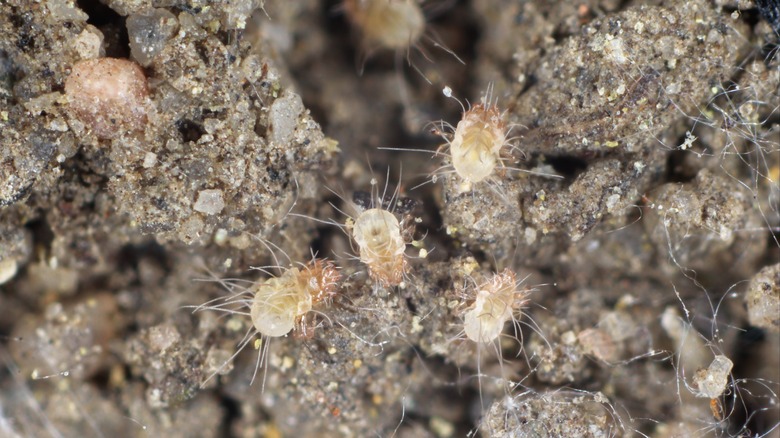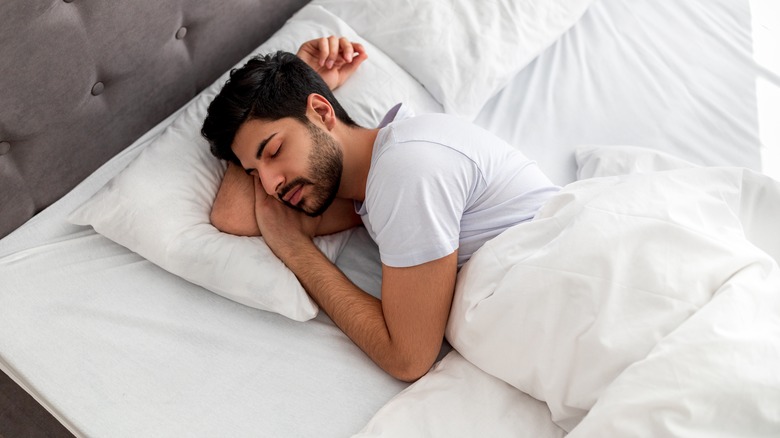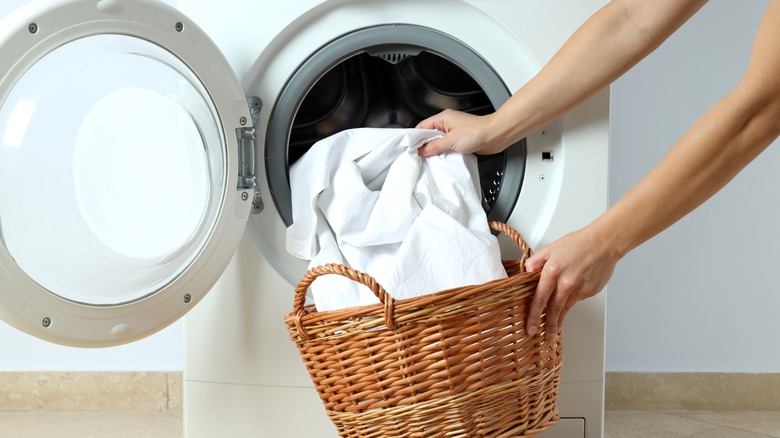Here's What Really Happens When You Don't Change Your Sheets Weekly
There's no way around it — maintaining your home takes a lot of work. It's not only a matter of addressing the obvious things that are the dirtiest parts of a home, like the shower, toilet, fridge, and kitchen sink (via BHG). It's also important to do things that might not be as apparent. In fact, things you may never even think much about are often the tasks that are most needed to keep your home clean and germ-free.
Some of the dirtiest places in your home may seem inconsequential in terms of having to clean them, like the microwave, dryer, and, oddly enough, the washing machine, which even needs washing. A dirty microwave can make you sick, and a dryer with lint build-up can be a fire hazard, per HGTV.
There are other weekly tasks that should be attended to that can also be easy to overlook but can keep you healthy. Changing your sheets is one of them.
What lives in your dirty sheets
Dirty sheets have the potential to cause a myriad of health problems — something to think about when you stay over at someone's house. Brace yourself because some of these facts may send you running for the laundry room.
According to WebMD, each and every day, your skin sheds millions of cells, 500 million to be exact. You can guess how many are shed while you're sleeping, but that's not the worst part. While the skin cells are bunching up in your sheets, dust mites are making their way to eat them. These countless dust mites feedings (not to mention their droppings!) taking place in your sheets can result in skin flare-ups of eczema, contact dermatitis, allergies, and even asthma.
Yet, it's not only dust mites that pose a problem. Other things that build up in dirty sheets include bacteria, fungi, and environmental pollutants, like pollen (via Healthline). If you have pets, their bacteria and dander will settle in the sheets, and, if you smoke, those particles will nestle in them, too.
Dirty sheets can cause infection
Clearly, dirty sheets aren't just gross but a health hazard. "In addition to attracting bacteria, dirty sheets rub against your skin while you sleep — and that friction can lead to skin irritation," says dermatologist Joshua Zeichner (via Redbook). The oil left on pillowcases can cause acne flares, while sweat mixed with mold and bacteria is also a recipe for problems.
Dirty bedding can also cause infections, including jock itch, which affects the genitals, thighs, and buttocks, as well as the "superbug" methicillin-resistant staphylococcus aureus, or MRSA.
Consequently, it may surprise you to know that most people don't clean their sheets enough or even regularly. Insider reports that a survey of single men ages 18-24 found that they changed their sheets a total of four times a year.
You should change your sheets this often, per experts
Experts agree that washing your sheets once a week is the goal, though there are times when it should be more often. According to Martha Stewart, if you or your partner tend to sweat more than usual, it's a good idea to change your sheets twice a week.
Other times when sheets should be changed more often include when you or your partner have been sick or have an open wound, infection, or lesion, per Reader's Digest. If either of you has bad allergies, cleaner sheets can help alleviate symptoms. Plus, if you sleep naked and/or let your pets sleep in bed with you, you'll want to clean your sheets more for obvious reasons.
Finally, it may not be possible to wash your sheets during a busy workweek, but there is an easy workaround. Keep extra sheets cleaned, folded, and ready to be placed on your bed, and then catch up on washing on the weekends.



